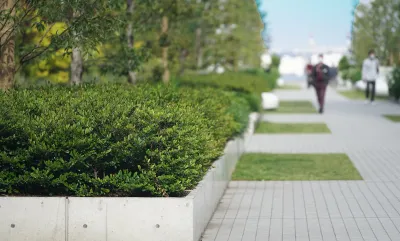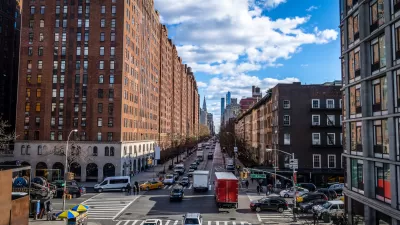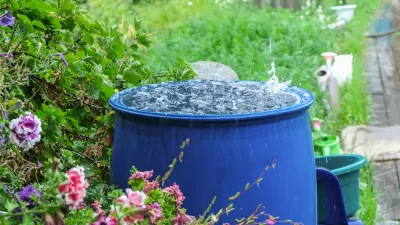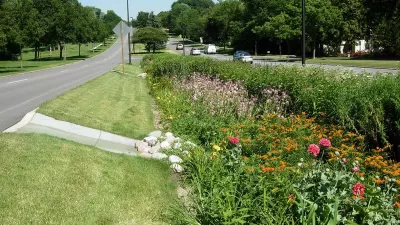Neighbors engage in a practice known as “tegelwippen,” picking up paving stones and replacing them with permeable surfaces, often with the support of local governments.

A Dutch practice known as “tegelwippen” lets urban residents take climate mitigation into their own hands. As Klaus Sieg explains in a piece for Reasons to be Cheerful, “The aim is to unseal as many surfaces as possible, whether in private gardens, schoolyards, driveways, public squares or sidewalks, as in the Katendrechtse Lagendijk.”
Residents are seizing on the movement to organize neighborhood Tegelwippen events, in which people work on replacing impermeable surfaces with plants. Dutch cities support the efforts by, for example, offering a free service to take away pavers and stones removed through these projects.
The concept was developed by an Amsterdam creative agency, which first organized a Tegelwippen competition during Covid-19. Since then, the equivalent of roughly 235 soccer fields has been transformed from pavement to permeable, green space.
The phenomenon is starting to take hold in neighboring Germany. “There are now lawns, flower beds, park benches and even some boules courts on former parking lots, abandoned areas, dog waste grounds and traffic islands” in Düsseldorf, and Hamburg is also funding similar projects this year.
FULL STORY: In the Netherlands, Anyone Can Turn a Slice of Sidewalk Into a Garden

Planetizen Federal Action Tracker
A weekly monitor of how Trump’s orders and actions are impacting planners and planning in America.

Restaurant Patios Were a Pandemic Win — Why Were They so Hard to Keep?
Social distancing requirements and changes in travel patterns prompted cities to pilot new uses for street and sidewalk space. Then it got complicated.

Map: Where Senate Republicans Want to Sell Your Public Lands
For public land advocates, the Senate Republicans’ proposal to sell millions of acres of public land in the West is “the biggest fight of their careers.”

Maui's Vacation Rental Debate Turns Ugly
Verbal attacks, misinformation campaigns and fistfights plague a high-stakes debate to convert thousands of vacation rentals into long-term housing.

San Francisco Suspends Traffic Calming Amidst Record Deaths
Citing “a challenging fiscal landscape,” the city will cease the program on the heels of 42 traffic deaths, including 24 pedestrians.

California Homeless Arrests, Citations Spike After Ruling
An investigation reveals that anti-homeless actions increased up to 500% after Grants Pass v. Johnson — even in cities claiming no policy change.
Urban Design for Planners 1: Software Tools
This six-course series explores essential urban design concepts using open source software and equips planners with the tools they need to participate fully in the urban design process.
Planning for Universal Design
Learn the tools for implementing Universal Design in planning regulations.
Heyer Gruel & Associates PA
JM Goldson LLC
Custer County Colorado
City of Camden Redevelopment Agency
City of Astoria
Transportation Research & Education Center (TREC) at Portland State University
Camden Redevelopment Agency
City of Claremont
Municipality of Princeton (NJ)





























